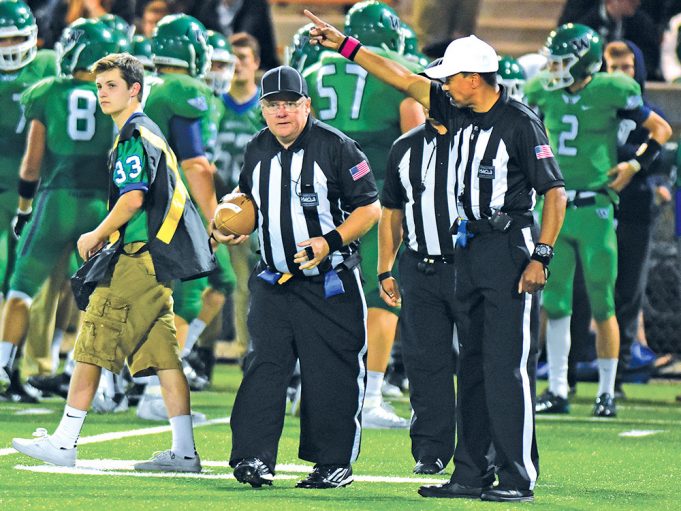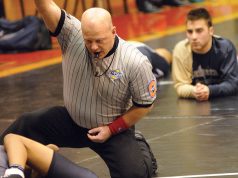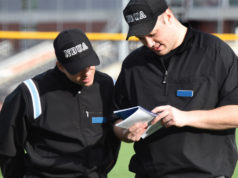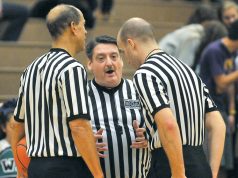In many areas, we don’t have a choice about who we’re teamed with. We might have some input into the process, but the final decision generally rests with an assigner. As sports start to come back, many of us might be faced with new partners or crew members.
In some locales, however, officials are able to form their own crews or pick their own partners. And while partnerships may last for years or even decades, sooner or later an opening will occur that needs to be filled. So how should a crew go about selecting an official to join its ranks? The answer depends on a number of factors.
What level of play are you working? This is the key element in the equation. If your crew works varsity games, anyone you add to the crew should be capable of working games at that level.
Perhaps you’re thinking of adding someone who is making the jump from junior varsity to varsity contests. That’s fine, but be sure your prospective partner is capable of making the move. There is a lot that goes with being under the Friday night lights in October, or in a packed gym on a Tuesday night in January apart from the caliber of play.
What is expected of the newcomer?
Is the crew looking for a veteran to step in where their former colleague left off? Or would the group be willing to take in and mentor someone with less experience who is looking to climb the ladder?
Different positions may call for different skills, depending on the sport. If you’re working football and your umpire with two decades of experience moves on, do you want to recruit another umpire, or is it more prudent to slide someone already on the crew into that slot and have a newcomer handle another position?
Is the recruit able to handle the added responsibility? Many crews or partners conduct offseason rules study groups and expect all to participate. The new addition had better know the rules or be ready to dig into the rulebook before hitting the court or field.
Personalities matter, individually and collectively. Some outstanding officials are also outstanding mentors. Some are not. If the crew is made up of experienced veterans, would the group be comfortable bringing a less-experienced official into the fold?
A younger official is likely to be a bit anxious about joining an experienced crew, particularly if it means stepping up a level and theoretically, a higher level of competition. If someone on the crew is skilled as a mentor, would they be willing to take a newcomer under their wing?
If you’re thinking about adding a veteran to the crew, has anyone had past experience working with him or her? Have there been any off-field issues? It’s important to get any potential problems out in the open and clear the air before a newcomer joins the crew.
Can the new crew member officiate?
But only to a point. It’s best the crew members are comfortable with each other. But the bottom line is whether or not your potential new crewmate can officiate. Don’t make the mistake of adding someone to the crew simply because they’re a friend or the friend of a friend, or they’re a warm body who happens to be available. If they don’t have the experience or ability to handle the level of play you’ll be working, it’s a recipe for trouble.
Consider geography. Depending on your location and the level of play you’re working, the crew may have to travel a considerable distance to games. If that’s the case, it might be best to add a crewmate who lives or works in an area that facilitates ease of travel. Varsity officials usually cover a wider geographic scope. The new addition must be prepared for some longer days or nights as well.
There’s no magic formula that assures that any new partnership will be successful. But some advance planning will make for a smoother transition for all involved.
What's Your Call? Leave a Comment:
Note: This article is archival in nature. Rules, interpretations, mechanics, philosophies and other information may or may not be correct for the current year.
This article is the copyright of ©Referee Enterprises, Inc., and may not be republished in whole or in part online, in print or in any capacity without expressed written permission from Referee. The article is made available for educational use by individuals.


















